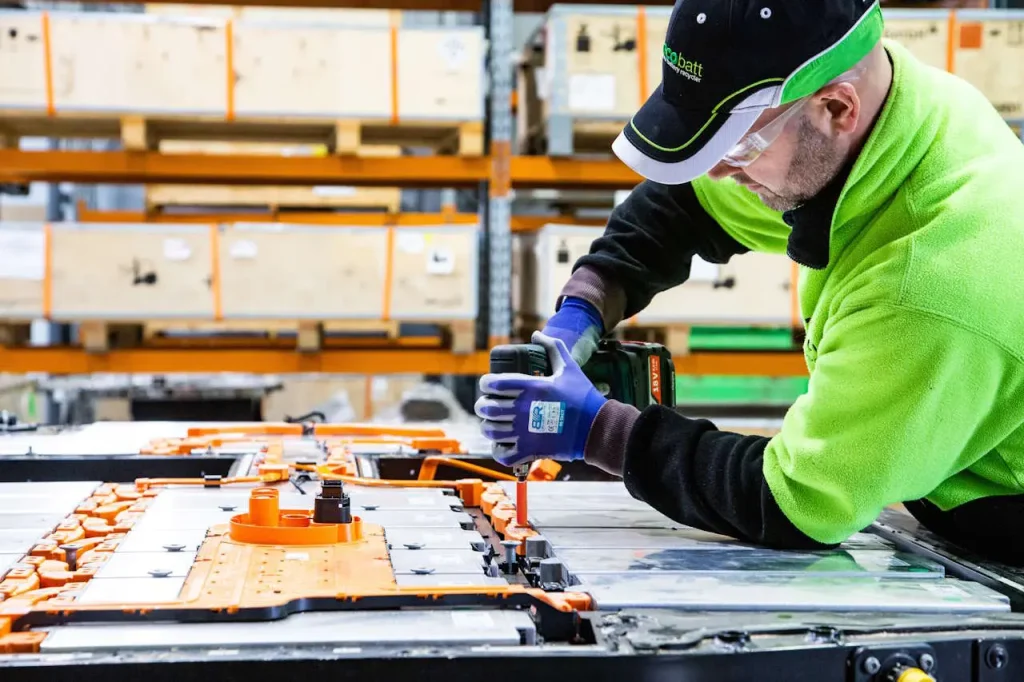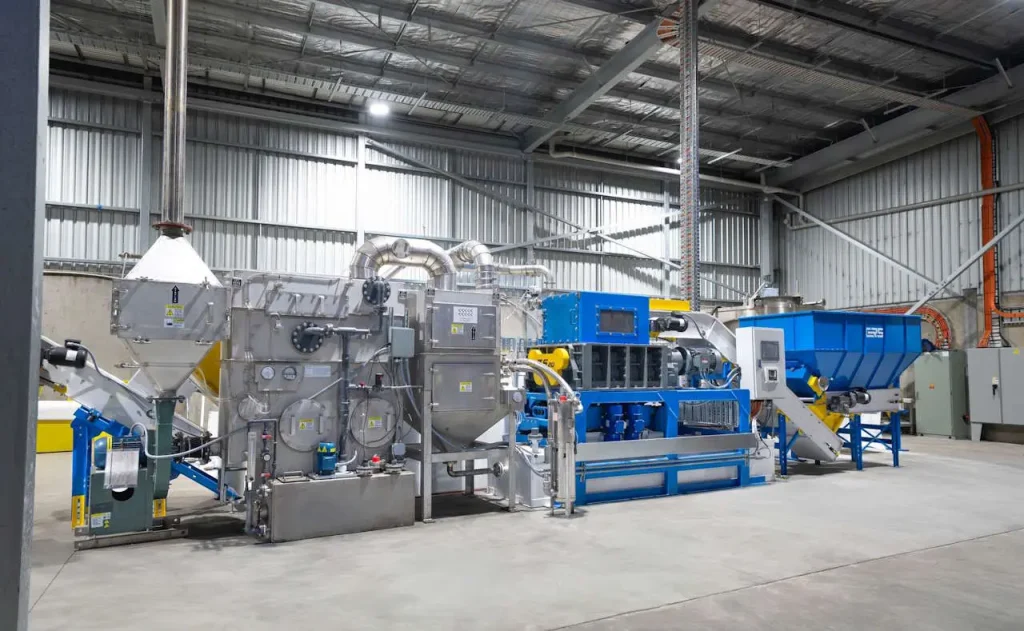BMW Group Australia has announced a national program to recycle high-voltage EV batteries from BMW and Mini vehicles, partnering with Victorian recycler EcoBatt.
The scheme covers packs that are damaged or have reached end-of-life and will channel them through EcoBatt’s Campbellfield (Victoria) facilities for safe discharge, shredding, and material recovery. The move aligns BMW’s local operations with its global “circular economy” strategy.
BMW Launches EV Battery Recycling Program
Under the partnership, batteries collected through BMW and Mini dealers nationwide will first be sent to EcoBatt’s Battery Discharge Plant to remove residual energy—energy that is then reused to help power the site—before being processed at EcoBatt’s newly opened Battery-in-Devices Shredding (BIDS) plant. The BIDS facility is described as the first of its kind in Australia and is capable of processing up to 5,000 tonnes of batteries annually.
The mechanical shredding stage produces “black mass,” a concentrate rich in valuable minerals including lithium, cobalt, nickel, manganese, and graphite. This black mass is supplied to downstream refiners, where those materials are recovered and fed back into manufacturing supply chains for use in new high-voltage batteries.
BMW and EcoBatt say the system enables recovery of more than 90% of valuable materials, significantly reducing the need for virgin extraction and keeping hazardous waste out of landfill.
Safety is a prominent design feature of the program. In addition to the controlled discharge process that lowers thermal risk, EcoBatt has developed specialised transport containers for handling damaged EVs and battery packs during transit. These include integrated fire-suppression systems to reduce the risk of thermal runaway incidents.
EcoBatt’s Campbellfield site is intended as a hub in a growing regional network, with additional BIDS facilities planned for Western Australia and New Zealand. A further capacity boost is slated via a new URT lithium battery recycling plant expected to be commissioned in 2026, which would lift total capacity well beyond today’s levels and strengthen local processing of critical minerals.
For BMW, the Australian rollout extends a broader corporate push toward closed-loop battery materials. Globally, the company has operated a Recycling and Dismantling Centre (RDC) in Germany for decades and collaborates with partners to recover and reintegrate materials like cobalt, nickel, and lithium into new cells—an approach now mirrored in the Australian market through EcoBatt.
Why it Matters: Australia’s EV fleet is growing quickly, and industry-commissioned research has forecast a steep rise in end-of-life battery volumes over the next two decades.
Summary
By establishing domestic, scalable recycling pathways now, automakers and recyclers can lower lifecycle emissions, capture valuable resources onshore, and address legitimate safety and environmental concerns about lithium-ion batteries at the end of life. BMW’s tie-up with EcoBatt is a concrete step toward that circular model—and one that could help set a template for other brands operating in the region.


